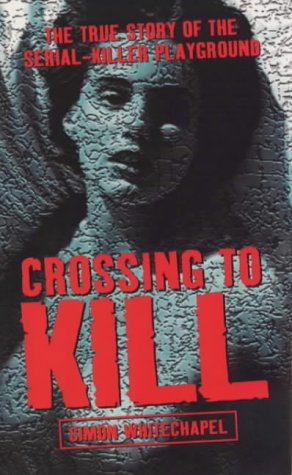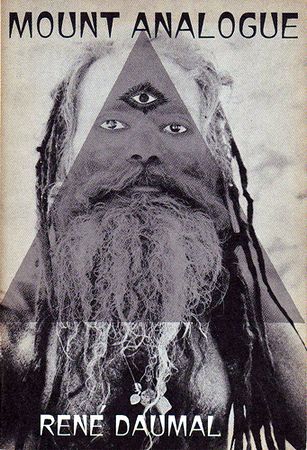 Have you ever read a press release from a band hyping their new album, and thought “Wow, this is going to be goddamn terrible. No question about it. Just terrible.”
Have you ever read a press release from a band hyping their new album, and thought “Wow, this is going to be goddamn terrible. No question about it. Just terrible.”
Yes, you have.
The press release itself will be innocuous, packed full of buzzwords and fake hype. But as you read it, your body will start to react. Your palms will sweat. Your spine will tingle. Your spleen will rumba with your kidneys. Your epidermis will hitchhike to Patagonia.
Why is this?
It’s because metal band press releases are written in code. Yes, it’s true. Years ago, CIA analysts worked with John Peel and Earache label reps to develop a secret method of communication called “Subliminal Hype Curtailment.” SHC is necessary due to the confluence of two factors. 1) Bands must lie in order to sell albums, and 2) they are fundamentally good blokes who don’t want to deceive you. So they lie and tell the truth in the same paragraph. To the neophyte, it seems like the album will rule. However, the coded SHC will tell the initiated a different story.
What they say: “the album is live/raw”
What they mean: “…it’s an underproduced rush job”
What they say: “the album is experimental/diverse”
What they mean: “we’ve traded out our old style for whatever’s trendy at the moment. If it was 2001, that would mean rapping and record scratches. But it’s 2014, so we’re all about djent, breakdowns, and EDM. We’ve got to follow our artistic yearnings, and it’s just our good fortunes that those artistic yearnings always seem to point to whatever’s selling records.”
What they say: “you can’t pidgeonhole the new album into a genre.”
What they mean: “you almost certainly CAN pidgeonhole the new album into a genre.”
What they say: “we’re consistent.”
What they mean:: “we’re in a creative rut so deep that it extends right the way through the earth and is a hill in China.”
What they say: “…dedicated fans.”
What they mean: “if I may brag, the drummer’s mum thinks we’re hot shit.”
What they say: “the new album has something for everyone.”
What they mean: “we’re confused, unfocused, and lack identity.”
What they say: “this is an amicable split, and we wish [insert member] all the best with his future projects”
What they mean: “I will commit a stabbing if I ever see that fuckhead again”
What they say: “underground legends”
What they mean: “nobody’s heard of us, nobody attends our shows, nobody gives us any money, and we just ate the bassist’s amp to avoid starvation”
What they say: “our heaviest album yet”
What they mean: “not our heaviest album yet.”
No Comments »
 Crossing to Kill is a true crime book about the life and (t/cr)imes of Abdul Latif Sharif, a chemist who fled the US to Mexico to avoid deportation, and then apparently became a prolific rapist and killer of Ciudad Juarez’s working class women.
Crossing to Kill is a true crime book about the life and (t/cr)imes of Abdul Latif Sharif, a chemist who fled the US to Mexico to avoid deportation, and then apparently became a prolific rapist and killer of Ciudad Juarez’s working class women.
Sharif was arrested (leaving an embarrassingly long body trail)…but the rapes and murders of young women went right on happening. The clouds were gone, but the rain continued. Was Sharif bribing local gangs to commit crimes on his behalf, to make it seem like they’d arrested the wrong man? Or is Sharif part of a Clockwork Orange-esque change in Mexico, with Hispanic macho culture morphing into something much sicker?
This book offers analysis and speculation on the causes of the Ciudad Juarez murders. Whitechapel’s prose is very efficient – and this might be Crossing to Kill‘s Achilles Heel. After about forty pages he has recapped the murder spree up to date, and suddenly there seems little left to talk about. Much of the book is filled with topics of general interest to Whitechapel – soon we’re reading asides about the body types of Roman emperors, and a Catholic writer’s mistranslation of a word in Ecclesiastes. Crossing to Kill takes you far away from Mexico, and reads almost as a continuation of his earlier book Intense Device in some parts.
Crossing to Kill is probably better read as a book on crime and psychology than a specific book about Sharif’s crimes. Answers are few, and vague. Perhaps that’s the point, that all we have are guesses. But why read a book when there’s nothing waiting at the end except “I don’t know”? The official police reports will get you to the same place much faster.
Occasionally Whitechapel makes an incredible through-the-scope sniper shot of analysis, and sometimes he draws together unrelated subjects into an unexpected but persuasive whole. Other times – as when he speculates that Sharif could have been on steroids, based on some of his buddies being into Arnold Schwarzenegger movies – you get the sense of too little butter being spread across too much bread.
But there’s creepy and evocative ideas, such as when the murders are compared with an electron microscope, where small cells must be destroyed so that they can be analysed. The comparison with the young women of Ciudad Juarez is unmissable. Young women who would otherwise have lived their lives and have been forgotten are now receiving publicity, memorials, and prayers. They are being used as rallying points for feminists and morality campaigners and social justice groups. Indeed, they have unintentionally achieved kind of immortality. All they needed to do was die horribly.
It’s readable and far from dull, but I think Simon Whitechapel was the wrong person to write this book. This subject does not lend itself to scholarly analysis and armchair detective work. Crossing to Kill should have been written by a Mexican policia with twenty years of dirt under his fingernails.
No Comments »
 If my head is a hotel, this book is a guest that stayed overnight, and left its wallet behind. It’s a tiny volume that can be read in about half an hour, but when you’re done, you’re left with a maddening sense of being entangled in unfinished business.
If my head is a hotel, this book is a guest that stayed overnight, and left its wallet behind. It’s a tiny volume that can be read in about half an hour, but when you’re done, you’re left with a maddening sense of being entangled in unfinished business.
It’s about a group of metaphysically-minded mountaineers who, noting that mountains so often appear in metaphors, myths, and thought experiments, believe that there is an actual “Mount Analogue” somewhere on the globe…a literal metaphor, paradoxical though that sounds. They set out on a journey to find this hypothetical mountain, and in a far off non-Euclidean land, they succeed.
The book ends with them beginning to climb the mountain’s slope. The author died before he could finish the book, leaving the reader forever stranded at the foothills of what seems like an epiphany. If you want a comparison, this book reminds me of the third part of Gulliver’s Travels, the part few remember yet is in some ways the most thoughtful section of the book. It’s not really action-driven, and although it contains lots of interesting spectacles, it’s implicitly concerned with what’s happening inside the onlooker’s head.
For a book with its head in the clouds, Mount Analogue’s characters are often preoccupied with practical matters, such as bartering for supplies in foreign countries, and setting up outposts in case the quest takes longer than expected. Some of the mountaineers forsake their quest and return home – an enjoyable touch. Where’s the excitement in climbing a mountain if just anyone can do it?
But it’s also fantastic, involving humans made of negative space, and “peradams”: strange gemstones that can only be found by people truly in need of them. Again the Gulliver’s Travels comparisons come out, because he does not let the main thrust of the story distract him from interesting philosophical and moral asides. If he’d left these out, he might have successfully completed the book before his death. But it might also have been a poorer book, a less stimulating book.
Daumal’s wit and writing might be knee-slappingly Gallic (“A knife is neither true nor false, but anyone impaled on its blade is in error.”), but I think Mount Analogue also of course the “Time between Times” marking the demarcations of night and dawn. What’s a mountain except the space between heaven and earth? Or in this story’s case, the space between reality and metaphor?
I am interested to learn where Daumal was going with all this. Due to his death, I will never know. Mount Analogue is a rare thing – a great book that I’m not sure that you should read.
No Comments »
 Have you ever read a press release from a band hyping their new album, and thought “Wow, this is going to be goddamn terrible. No question about it. Just terrible.”
Have you ever read a press release from a band hyping their new album, and thought “Wow, this is going to be goddamn terrible. No question about it. Just terrible.”

